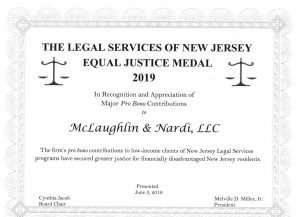
New Jersey’s Law Against Discrimination has rightly been called one of the strongest employee protection laws in the nation. This is true both because of the broad range of inherent characteristics which it protects from discrimination, and the strong legal protections and remedies it provides. In short, the Law Against Discrimination prohibits employers from discriminating against employees because of a wide range of inherent qualities which make them who they are. It likewise prohibits harassment because any of these characteristics as well. These protected characteristics include race, creed, color, national origin, nationality, ancestry, sex (including pregnancy and sexual harassment), marital status, domestic partnership or civil union status, affectional or sexual orientation, gender identity or expression, atypical hereditary cellular or blood trait, genetic information, liability for military service, and mental or physical disability, including AIDS and HIV related illnesses. It also prohibits discrimination or harassment because of an employee’s age.
The Andujar Case
The Third Circuit Court of Appeals, which hears appeals from the federal district courts in New Jersey, Pennsylvania, Delaware and the United States Virgin Islands, recently issued an instructive opinion in the appeal of an age discrimination verdict under the Law Against Discrimination in the case of Santos Andujar versus General Nutrition Corporation.
 New Jersey Lawyers Blog
New Jersey Lawyers Blog



 The
The 



